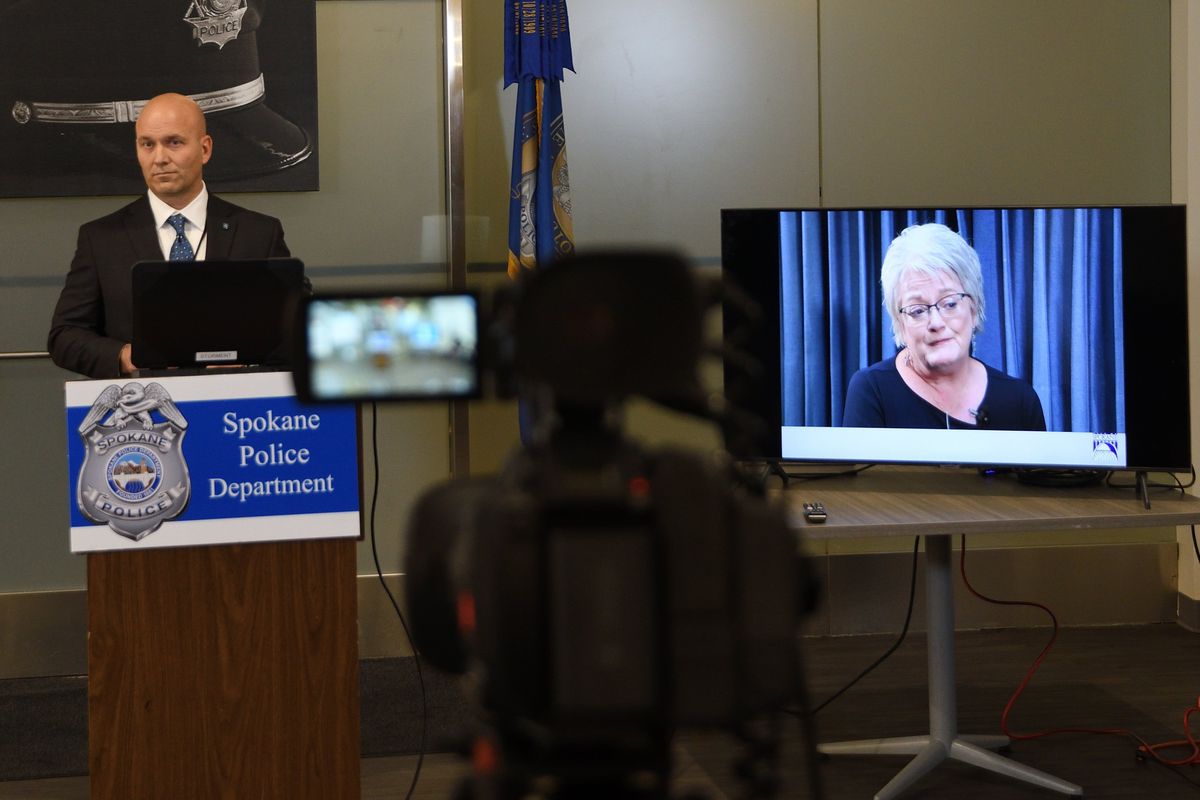Hoff’s family proves crucial to helping solve murder, now live with fact family member committed brutal crimes

While Candy Rogers was the victim in the 1959 slaying, Spokane Police Department Lt. Troy Teigen said the new victims in the case are John Reigh Hoff’s family members.
He said Hoff’s widow, children and relatives now have to deal with the pain that comes along with Hoff’s evil crimes.
“Nothing like this should ever happen to a child – anytime, anywhere – and yet it did,” Teigen said.
Sgt. Zac Storment, a detective with Spokane police’s Major Crimes Unit, said while the Rogers family might feel some relief, the Hoff family is now absorbing that stress.
“I took those people’s lives and their childhood and dumped it on its head,” Storment said. “What they believed about their father and growing up has been forever changed.”
Cathie, whose last name was not released, said in an interview with Spokane police that it took awhile for the news to sink in that her father was a killer.
She said she lived most of her life thinking her father killed himself – when Cathie was 9 years old – because he was depressed. Now, she said she thinks it’s because he could no longer live with the guilt of what he did that day in March 1959.
“He got to die with people thinking that he was an upstanding man and he wasn’t,” said Cathie, who called her father “evil.”
Cathie said in a statement that though she was not yet born when Hoff killed Rogers, the sorrow and gravity of the injustice has weighed heavily on her.
Hoff killed himself, Cathie said, but “he has not escaped the scrutiny of being held accountable for his crime. I pray those wounded by his acts will know how deeply I grieve with them and to know how valuable and precious Candy is to myself also.”
Cathie was instrumental in helping to solve the case.
A Washington State Patrol Crime Lab forensic scientist identified semen in Rogers’ underwear in the early 2000s, Storment said. The DNA profile was entered into a DNA database, but Storment said there were no hits.
Brittany Wright, another WSP Crime Lab forensic scientist, spoke with Othram, Inc., a private DNA evidence laboratory in Texas earlier this year.
“Brittany Wright, as much as any person that ever worked this case, deserves huge amounts of credit for showing us the way,” Storment said.
The lab officials felt they could overcome the degraded DNA from six decades ago.
Othram provided names of three Spokane brothers, including Hoff, who could be linked to Rogers’ death 2½ months ago. All the brothers are deceased.
Storment said he called one of Hoff’s four children, Cathie, the next day. She visited the police station, and after learning her father could have been involved in a terrible crime long ago, Cathie submitted her DNA to help the investigation.
Wright concluded that Cathie’s DNA was 2.9 million times more likely related to the suspect’s DNA profile than the general population, making it a strong possibility that Cathie’s father or one of two uncles committed the crimes.
Storment then needed Hoff’s DNA, so police exhumed his body from his grave at Riverside Memorial Park near Spokane.
From that DNA sample, Wright concluded Oct. 1 that Hoff’s DNA matched the DNA pulled from Rogers’ underwear.
“We know with certainty the semen found in Candy Rogers’ underwear is John Reigh Hoff’s,” Storment said.
Hoff and Rogers were buried at the same cemetery, but Storment said Hoff’s family decided to move his body to another gravesite and away from where Rogers is buried.
Storment told Hoff’s children and his widow of Hoff’s guilt. He also delivered the news to several of Rogers’ relatives.
Storment apologized to those who knew Rogers and who did not get the opportunity to hear the case was solved prior to Friday’s news conference.
Jay Whitver, Rogers’ cousin, was one of those family members who learned from media sources that Rogers’ case had been solved.
“We’re just so happy that the police department did solve this after 62 years,” Whitver said.
Whitver figured the day would never come and was “happier than hell” it was over.
Teigen said there are more than 110 unsolved homicide cases in Spokane and police are actively working on a couple of them.
“If you commit a murder in the city of Spokane, you will always be looking over your shoulder because we will never stop looking for you,” Spokane police Chief Craig Meidl said.